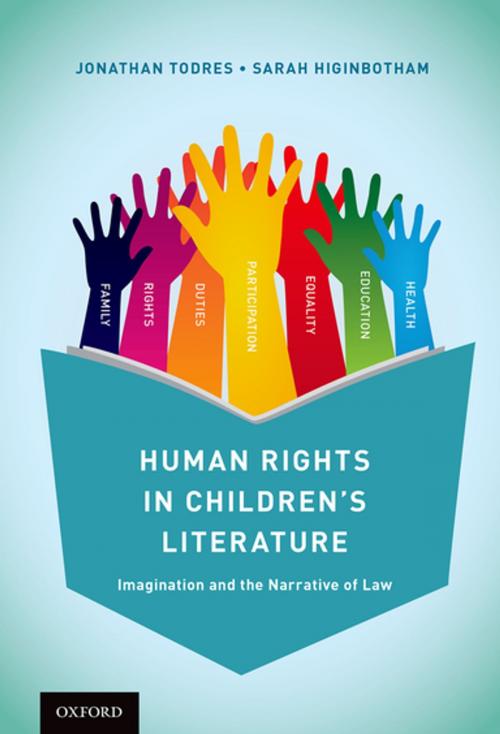Human Rights in Children's Literature
Imagination and the Narrative of Law
Nonfiction, Reference & Language, Law, Family Law, International, Fiction & Literature, Literary Theory & Criticism| Author: | Jonathan Todres, Sarah Higinbotham | ISBN: | 9780190277581 |
| Publisher: | Oxford University Press | Publication: | December 1, 2015 |
| Imprint: | Oxford University Press | Language: | English |
| Author: | Jonathan Todres, Sarah Higinbotham |
| ISBN: | 9780190277581 |
| Publisher: | Oxford University Press |
| Publication: | December 1, 2015 |
| Imprint: | Oxford University Press |
| Language: | English |
How can children grow to realize their inherent rights and respect the rights of others? In this book, authors Jonathan Todres and Sarah Higinbotham explore this question through both human rights law and children's literature. Both international and domestic law affirm that children have rights, but how are these norms disseminated so that they make a difference in children's lives? Human rights education research demonstrates that when children learn about human rights, they exhibit greater self-esteem and respect the rights of others. The Convention on the Rights of the Child -- the most widely-ratified human rights treaty -- not only ensures that children have rights, it also requires that states make those rights "widely known, by appropriate and active means, to adults and children alike." This first-of-its-kind requirement for a human rights treaty indicates that if rights are to be meaningful to the lives of children, then government and civil society must engage with those rights in ways that are relevant to children. Human Rights in Children's Literature investigates children's rights under international law -- identity and family rights, the right to be heard, the right to be free from discrimination, and other civil, political, economic, social and cultural rights -- and considers the way in which those rights are embedded in children's literature from Peter Rabbit to Horton Hears a Who! to Harry Potter. This book traverses children's rights law, literary theory, and human rights education to argue that in order for children to fully realize their human rights, they first have to imagine and understand them.
How can children grow to realize their inherent rights and respect the rights of others? In this book, authors Jonathan Todres and Sarah Higinbotham explore this question through both human rights law and children's literature. Both international and domestic law affirm that children have rights, but how are these norms disseminated so that they make a difference in children's lives? Human rights education research demonstrates that when children learn about human rights, they exhibit greater self-esteem and respect the rights of others. The Convention on the Rights of the Child -- the most widely-ratified human rights treaty -- not only ensures that children have rights, it also requires that states make those rights "widely known, by appropriate and active means, to adults and children alike." This first-of-its-kind requirement for a human rights treaty indicates that if rights are to be meaningful to the lives of children, then government and civil society must engage with those rights in ways that are relevant to children. Human Rights in Children's Literature investigates children's rights under international law -- identity and family rights, the right to be heard, the right to be free from discrimination, and other civil, political, economic, social and cultural rights -- and considers the way in which those rights are embedded in children's literature from Peter Rabbit to Horton Hears a Who! to Harry Potter. This book traverses children's rights law, literary theory, and human rights education to argue that in order for children to fully realize their human rights, they first have to imagine and understand them.















